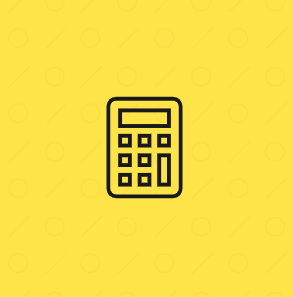What are accelerated sales tax payment programs?
by January 16, 2025
Anybody who has to collect and remit sales tax knows that states want their money in a timely manner. In fact, the more sales tax a retailer collects from buyers, the more often states require them to remit sales tax. While a low-volume or hobby seller might only have to file and pay sales tax once per year, a high volume retailer is often required to file and pay sales tax monthly.
Or, in some states, even just a few days after the taxable period ends.
At least, this is the growing trend when it comes to very high volume retailers.
So, what’s going on here?
What’s are accelerated sales tax payment programs?
At its core, an accelerated sales tax payment program is when states require that a high volume business pays sales tax more often than other businesses. For example, most states have a threshold where a business that collects above a certain amount in sales tax is required to file sales tax monthly. Historically, monthly was the most common sales tax filing frequency for high volume businesses.
But accelerated programs allow states to require sales tax remittance from retailers even more frequently. They may require twice monthly payments, or an additional payment mid-year.
States with accelerated sales tax payment programs
Not all accelerated sales tax programs are created equal. Here’s a quick rundown.
Remember, if you are a high volume seller in one of these states, be sure to read all correspondence from the state taxing authority. They will generally let you know if and when an accelerated payment is due.
Arkansas requires that all businesses in Arkansas with average net sales of $200,000 or more per month must make prepayments of their sales tax and vender use tax.
Florida requires taxpayers with sales tax liability of $200,000 or more in state sales and use tax during the fiscal year (July 1-June 30) to make estimated sales tax payments during the next calendar year.
Georgia requires businesses with a tax liability of $60,000 or more, excluding local sales tax, to make prepayments of their state sales tax.
Illinois requires businesses with a average monthly sales tax liability of $20,000 or more to make sales tax prepayments.
Massachusetts requires taxpayers whose sales tax liability exceeds $150,000 in Massachusetts sales tax in the previous calendar year to remit tax collected through the 21st day of a month by the 25th day of that same month.
Michigan taxpayers that had $720,000 or more of Sales or Use tax liability in the previous calendar year are required to make accelerated payments.
New York requires businesses with a combined total of taxable receipts, purchases subject to tax, rents, and amusement charges of $300,000 or more in a quarter to make prepayments.
North Carolina requires taxpayers who are consistently liable for at least $20,000 a month in state and local sales and use taxes to make a monthly prepayment of the next month’s liability when filing the monthly return due on or before the 20th day of each month.
Ohio taxpayers whose annual tax liability exceeds $75,000 per month are required to make accelerated payments. Please note, TaxJar does not support prepayments in Ohio.
Oklahoma requires taxpayers owing an average of $2,500 or more in sales tax a month to make estimated prepayments.
Pennsylvania businesses who have sales tax liability of $25,000 or more in the 3rd quarter of the previous year are required to prepay sales tax.
Texas requires businesses with $1,500 or more in reported state sales tax during the previous two quarters to move from monthly to quarterly filing frequency. However, the state gives these businesses the option to continue to file quarterly but requires them to make a mid-quarter prepayment. Please note, TaxJar does not support prepayments in Texas.
Ready to automate sales tax? To learn more about TaxJar and get started, visit TaxJar.com/how-it-works.








